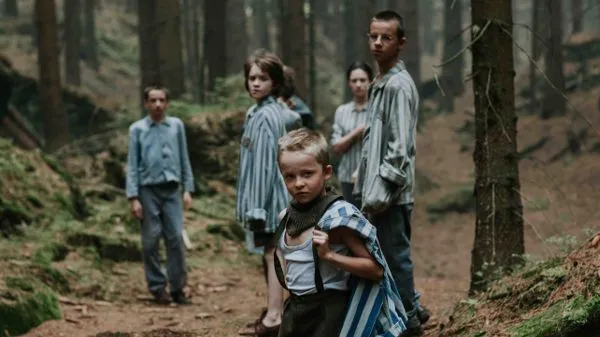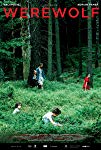Eye For Film >> Movies >> Werewolf (2018) Film Review
Werewolf
Reviewed by: Amber Wilkinson

Trauma in the aftermath of war is set within a genre framework in Adrian Panek's Werewolf - which is in competition at Tallinn Film Festival. Despite the title, this film isn't about supernatural horrors, but those that are perpetrated by humans and the dangers that lurk, and can spring from, within.
The war is coming to an end at the Gross-Rosen concentration camp and the Nazis are slaughtering prisoners en masse - except for one group of children, ranging in age from infant school to late teens, who prove 'entertaining' enough to be spared.

Liberated by the Russians, they are taken to a crumbling house in the middle of a forest, where older woman Jadwiga (Danuta Stenka) attempts to reassert a sense of 'normality' - an uphill task given that many of the children are too young to understand what that word even means. The horrors of the camp are soon replaced by an equally deadly foes - the camp's Alsatian dogs that have gone rogue and are pack hunting in the surrounding woodland, and liberators who have their own animal tendencies. The children soon find themselves 'parentless' again and trapped within the confines of the house with little food and water.
You don't have to look far for allegory in Panek's film. The children prove to be almost as feral as the dogs - prepared to fight for food and unable to use even a knife and fork after being brutalised in the camps. The Alsatians, meanwhile, are a clear representation of the lingering horrors of war that haunt survivors long after the last shots are fired. Against this setting, Panek allows familiar young adult themes to emerge, including a romantic rivalry towards older girl Hanka (Sonia Mietielica) between two of the teenage boys Wladek (Kamil Polnisiak) and "Kraut" (Nicolas Przygoda) - with the latter's German origins adding an extra level of allegory to the situation. This allows the tension to become two-fold, as the children attempt to fight the threat from outside, represented by the dogs, while also at risk from the psychological horrors that could emerge from within.
A question lingers over who the film is aimed at. Adult genre buffs may well find the horror elements of the film too restrained, because although the action involving the dogs is tensely handled and dead bodies litter the landscape, they are almost all shown in aftermath. The plots themes and cast - an ensemble without a weak link - are perhaps better suited to an older teen audience, who could even put it to good use in an educational setting. Panek is to be commended for his solid handling of character, avoiding demonising any of the children, so that even when they commit unpleasant acts, we are able to see how their experience has led to this. His gently hopeful conclusion is also a refreshing change.
Reviewed on: 30 Nov 2018


















